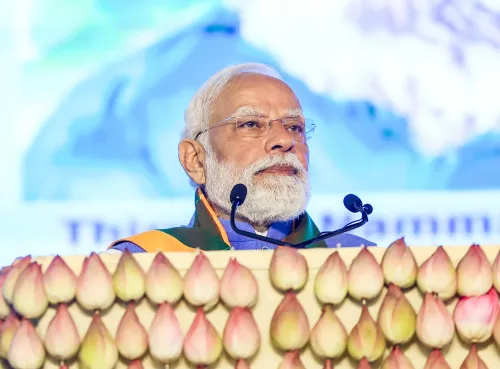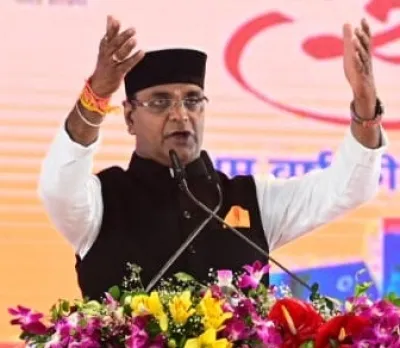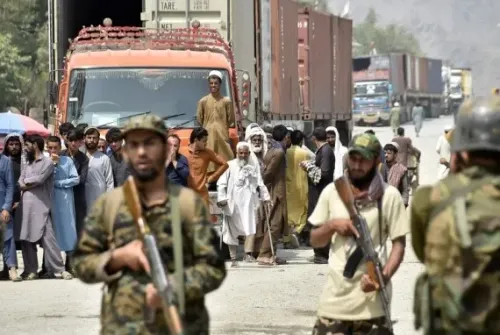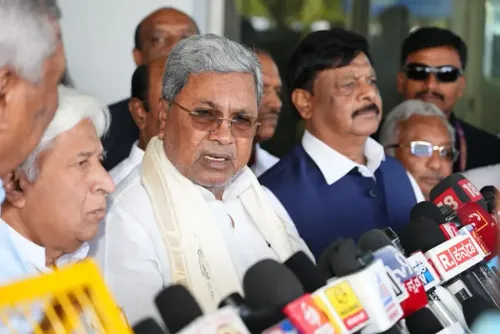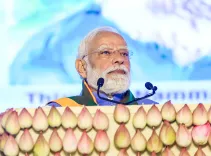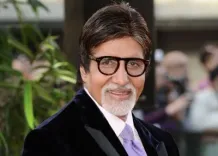What is Trinamool's Response to MLA's Babri Masjid Remarks?
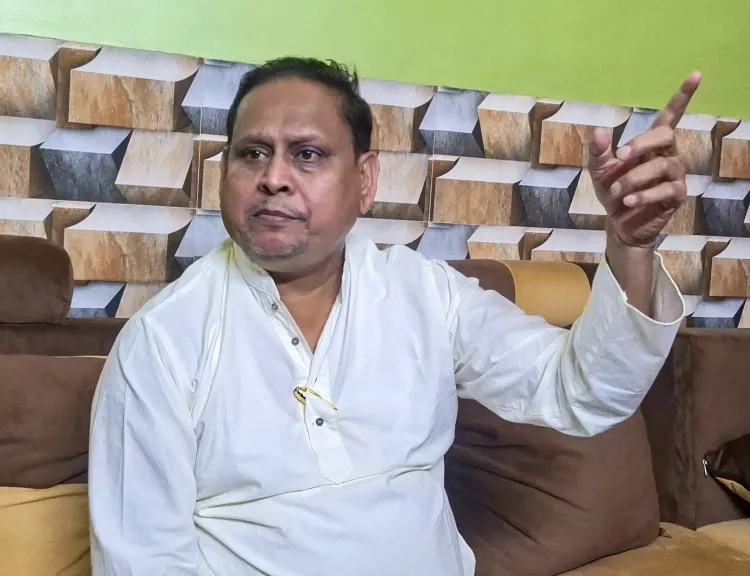
Synopsis
Key Takeaways
- Trinamool Congress faces internal turmoil due to controversial remarks by MLA Humayun Kabir.
- Political tensions rise as the party approaches Assembly elections.
- Kabir's comments could alienate crucial Muslim voters.
- Silence from the party leadership indicates discomfort with the situation.
- The controversy highlights the delicate balance of communal relations in West Bengal.
New Delhi, Nov 24 (NationPress) The ruling Trinamool Congress in West Bengal finds itself in a challenging and delicate political landscape just months ahead of the Assembly elections, following controversial remarks made by its MLA Humayun Kabir regarding the laying of a foundation stone for a “Babri Masjid” in the Beldanga area of Murshidabad district.
Notably, this region gained media attention in April due to violent protests against the Waqf Amendment Bill, resulting in property damage and significant displacement.
Kabir's comments have ignited a firestorm of controversy, putting his party in a difficult position and disrupting the Trinamool's carefully calculated pre-election strategies. The party must navigate a precarious balance between two conflicting electoral priorities – unifying the Muslim vote amid intense competition and preventing a Hindu counter-mobilization that could favor the Bharatiya Janata Party (BJP).
By publicly condemning Kabir's remarks, the Trinamool risks alienating a vital segment of Muslim voters, who are crucial for countering the rising influence of the BJP. This comes just six months after Chief Minister Mamata Banerjee unveiled her ambitious Jagannath temple in Digha, near Kolkata.
The temple's construction has drawn criticism for being perceived as a “soft Hindutva” move following allegations of minority appeasement by the Trinamool, and it has even sparked debate around its designation as a “dham”. Nonetheless, since its opening, it has attracted over 90 lakh devotees.
Should the Trinamool choose to ignore this issue, it may inadvertently affirm the BJP's narrative of minority appeasement, accelerating communal polarization in the state and jeopardizing its chances in the upcoming Assembly elections.
A clear example of such polarization occurred in the Maldaha Uttar Lok Sabha constituency, where a division in minority votes between Congress-Left and the Trinamool facilitated the BJP candidate's victories in both the 2019 and 2024 elections in this Muslim-majority area.
In the recent 2024 elections, the BJP significantly strengthened its position in three Assembly segments, leaving the Trinamool trailing despite leading in four other seats within the same parliamentary constituency.
Conversely, in adjacent areas where minority votes hold considerable sway, the BJP struggled to gain ground, with the Trinamool securing wins in places like Murshidabad and Baharampur, and Maldaha Dakshin going to Congress, among others. A definitive stance could shift the political dynamics.
Kabir has a history of controversies during his tenure as an IPS officer, including actions taken against him for apprehending a criminal allegedly associated with the former state government. He has also been scrutinized for his purported ties to a senior Congress leader in West Bengal.
Throughout his political career, he has often found himself at odds with the Trinamool's leadership due to his provocative remarks, targeting various party figures, including his assertion that a group surrounding Mamata Banerjee does not genuinely support her but rather influences her decisions.
He has even gone so far as to propose that Abhishek Banerjee, Mamata's nephew, who serves as the party's General Secretary and has been elected as an MP from Diamond Harbour three times, should be appointed as a Deputy Chief Minister.
Once again, Kabir's recent statements have stirred significant controversy, potentially more severe than before, plunging the ruling party into uncertainty just months ahead of the state Assembly elections.
Kabir's comments, coinciding with the anniversary of the Babri structure’s demolition, create a volatile blend of religious and electoral politics, risking alienation of a crucial voter segment while inviting sharp criticism.
The silence from the Trinamool regarding this issue reflects its discomfort, as intermediaries may quietly attempt to thwart the mosque initiative while the party's leadership distances itself from Kabir and his remarks.

